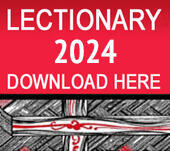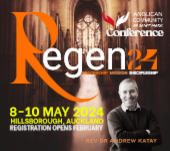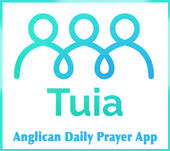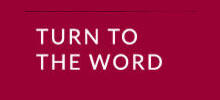Rev'd Lynda Patterson, Priest Assistant at ChristChurch Cathedral, preached this sermon as part of a special series in October: “Doing Faith Justice.”
When I look back on it now, much of what I know about the way the world works, I learned from the toybox at kindergarten. There are certain immutable rules of engagement that get worked out over the jigsaw puzzles and the plasticene and who gets to use the red crayons first. If you’ve watched any toddlers recently, you probably know them already. Rule 1: If I want it, it’s mine. Rule 2: if I give it to you and then change my mind, it’s mine. Rule 3: If you’ve got it, but I’m able to take it away from you, it’s mine. Rule 4: If it looks like the one I used to have, or the one I have at home, it’s mine. Rule 5: If it breaks, or we have to put it away, it’s yours.
One of the stories that we tell ourselves is that as we grow older, we gradually learn to play nicely with others. In my more cynical moments, I suspect that we just adopt slightly better camouflage in the war of getting what we want. Think about what happens in a shopping mall car park on a Saturday afternoon. There will be cars circling like vultures waiting for the first sign of a free parking space, indicators at the ready. When a car drives off, at least 4 others dart towards the space at the same time. I find it’s quite illuminating to read the lips of the drivers who miss out. None of us is immune.
When I flatted as a student, I’m not sure I ever bought my own milk. There would always be some in the fridge, and usually – because the owner wasn’t stupid – the level was marked on the side of the carton with a pen. It didn’t stop you taking the milk; it just meant that you had to top up the carton with water. My one consolation was that I couldn’t have been the only one doing it, because by the end of the pint the milk was so diluted it was virtually see-through. I would have been horrified if you’d told me that what I was doing was selfish. I simply assumed, like a toddler, that the world was basically arranged for my convenience.
In some ways, it’s not our fault if that’s what we think. There are certain rules that we absorb if we grow up in a society like ours in New Zealand, and they shape us whether we’re ever conscious of them or not. The first rule is what we might call the Law of dissatisfaction. What we have is OK, but there’s always something more that would make it even better. You’re got a great house? Imagine what you could do with an extension! You earn a reasonable amount? Imagine the kind of lifestyle you could have if you earned 20% more! This rule says that it’s natural to keep wanting things. If you don’t, there must be something wrong with you. And so begins our all-consuming love affair with more.
The next rule is the Law of entitlement. For every discomfort or inconvenience or trouble we experience, there is a product or a treatment or a process that will make it better, and it is our right to have it. Flicking through my junk mail and in the last two days alone, I have been offered hypnosis guaranteed to stop me smoking, an hour in a flotation tank which promises to reduce my stress levels by 80%, a tree manicure, a dog pedicure and 3 anti-aging products, which would make me look a combined total of 33 years younger, and so would return me to the womb. The law of entitlement tells us that there is nothing which we can’t have, and there’s no discomfort we experience which can’t be fixed.
The final Law is perhaps the most dangerous of all – it is the Law of scarcity. We believe that there is not enough to go around, and what we have may be taken away from us at any point. And so, piece by piece, we start to shore up our security. We start perhaps by wanting to own a home to live in, but slowly that home becomes an investment to help us leverage more purchases. We watch slowly as small packets of our life savings accumulate interest, and wonder if it might be more responsible to try to get a better return, and so we begin to speculate.
It’s what makes listening to sermons about social justice such an uncomfortable experience. We’ve read all the statistics, and we know in a slightly disconnected way how we are more privileged than 95% of the world’s population, we know we ought to be doing more and giving more, but when it comes to the crunch, all we really see about ourselves is the things we lack. Go and ask those people over there – they’re much better off than I am. The myth of scarcity takes hold of our imaginations and we learn to read the world as a profoundly hostile place. There is no room for the abundance and generosity of God.
The final verse of our Old Testament reading this morning is one of the simplest prescriptions for faith that we find in the Bible. What does the Lord require of you, says Micah, but to do justice, to love kindness, and to walk humbly with your God? It’s not complicated, but it’s one of the most subversive statements in the bible. These aren’t three things we have to do, or three boxes to tick, but three parts of a life lived in absolute faithfulness to God. Take it seriously, and it challenges those comfortable rules we live by. Take it seriously, and we will live like exiles in our own culture.
To do justice means that we can’t separate faith from economics. We can’t simply say, “Isn’t it terrible what some people have to live with?” and choose to do nothing. Travel from one side of Christchurch to the other, and you’ll see the disparity. If you do it at a walking pace, as the Hikoi of Hope did 10 years ago, you’ll also perhaps be able to hear people’s stories, the day-to-day reality of what it means to live with nothing in a culture which tells us time and again that the ones with the most toys win. To do justice means to sort out what belongs to whom and to try our best to give it back, and it knocks on the head our love affair with more. Do justice.
To love kindness, which can also be translated “to love tenderly,” means that we sort out our relationships, and we watch the company we keep. In the gospel story, Jesus quite deliberately keeps the wrong company. Tax collectors and sinners, outcasts of all sorts, illegal aliens, prostitutes, those who made a living from things that fell off the backs of trucks – these are the people that Jesus made friends with. To love tenderly means that we open ourselves to experience the pain of other people, even those most unlike us, or those who repel us most, until we are willing to do something about it. These people are not a painful duty or a distant irrelevance or competition for our scarce resources. They are a part of us, as close to us as those we care for most. Love tenderly.
And walk humbly with your God. I think it means that the goal of our faith is that we become a decent companion for God. We have to walk so closely with God that we can read God’s lips and watch God’s hands – so we can hear God’s priorities, and see what God is doing and witness the company God is keeping, and then try our best to join in.
Perhaps it is time to develop a theology of enough – to recognize our dissatisfaction, and our sense of entitlement, and our fear that we will never really have everything we need, and to say simply, “We have enough.” And then try and try, and probably fail again and again and yet keep trying to do what God requires, to do justice, to love tenderly, to walk humbly with God.

















Comments
Log in or create a user account to comment.